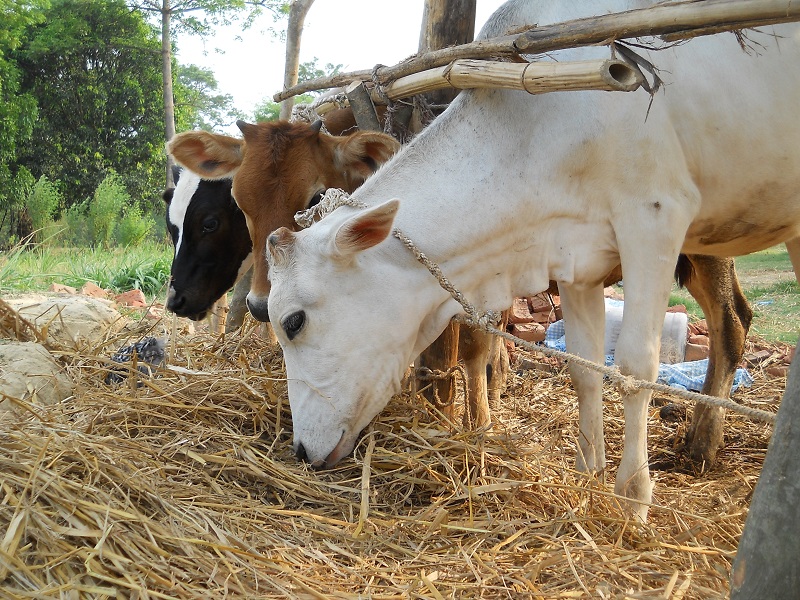

The cows of Kanji House built in Janaki Gaonpalika-6, Suwarnapur of Kailali have damaged the wheat crop of the locals. The wheat crop of a dozen farmers of Suwarnapur has been completely destroyed after the cows kept in the kanji house were opened at once.
Ganesh Chaudhary, a local, said, “My four bighas of wheat have been completely destroyed.” He said that the cows of Kanji House ate the crops of the farmers till they were full.
A kanji house has been constructed in Suwarnapur about a month ago as per the plan to raise loose cattle with the assistance of Rs. 500,000 from Janaki village municipality. Loose cows from Tikapur, Joshipur were brought and kept in Kanji House. According to the locals, about 800 loose cows were kept in the kanji house. The locals had protested after the daily death of cattle in the kanji house built in the open sky.
Locals had protested at Kanji House saying that the environment was foul as cattle and cattle were dying due to winter and hunger. The cows kept in the kanji house have been opened after the locals started protesting. There is even a mutual accusation about who opened the cows kept in the kanji house.
The locals had handed over a memorandum to Ward Chairman of Ward No. 6 Jhanak Bishwakarma and Village Municipality Chairman Pradip Kumar Chaudhary to relocate the kanji house. Chief Administrative Officer Narayan Bahadur Bista said that the municipality has spent Rs. 500,000 for the construction of the kanji house. “We went to the kanji house to control the loose cattle, but it was not successful. This is what we should do,” he said.
Although the village municipality spent on the fencing, there was no provision for feeding the cows kept in the kanji house. “Keeping cows in the open air in winter is certain to cause death. This is what happens after unplanned work,” said Ward Chairman of Ward No. 3, Pradip Shah.
The locals say that this problem would not have arisen if the livestock management work had been started with a plan. The same thing happened with the cattle of other municipalities, and after leaving it in a month, the herds of hungry cattle will enter the settlement and the farming will continue, “said Hari Chaudhary, a local. Now the local government should take responsibility for it. ”
The locals have demanded that the local municipality and the forest should compensate the farmers for the loss of their crops. “After spending millions, wheat and lentils could be eaten by cattle,” says Chaudhary. “If we don’t get relief from the damage, there will be famine.”
In Kailali, loose animals have become a problem for all the local municipalities. Even if the people’s representatives here manage loose animals, no one seems to be able to work in the management. The planning officer of Tikapur says that the expenses incurred by the municipality in animal management have not been utilized. “Cows give milk, we also buy and eat cow’s wheat, but the same cows are left untouched,” the official said.